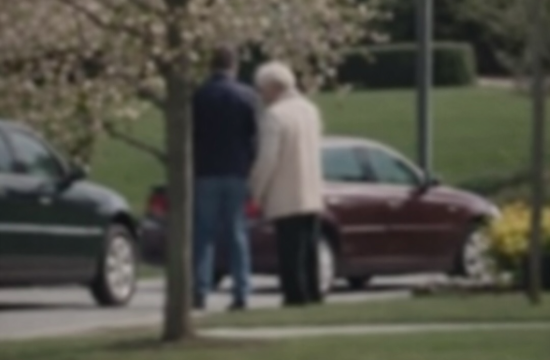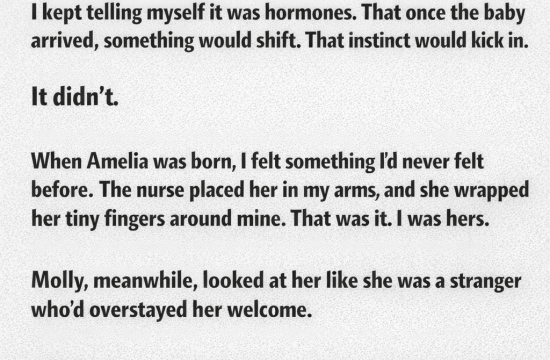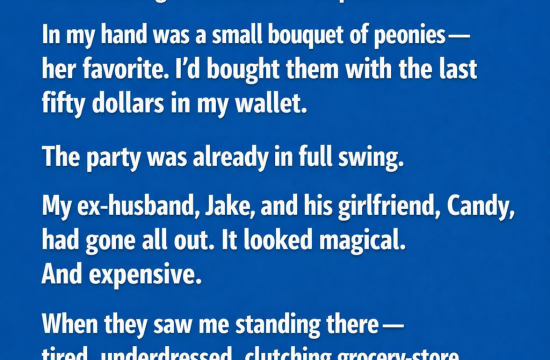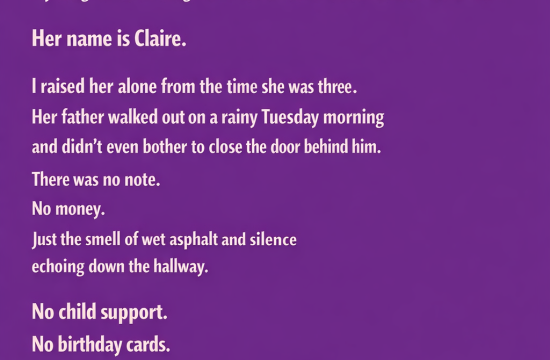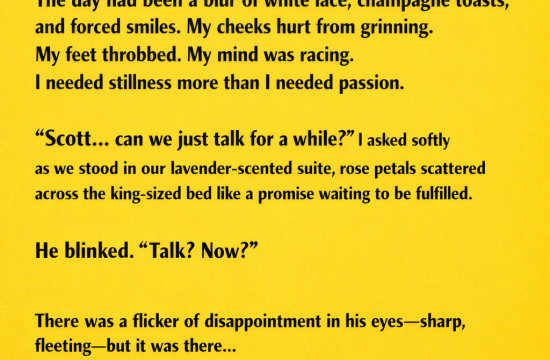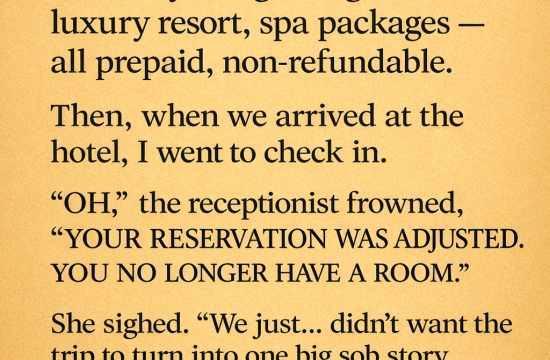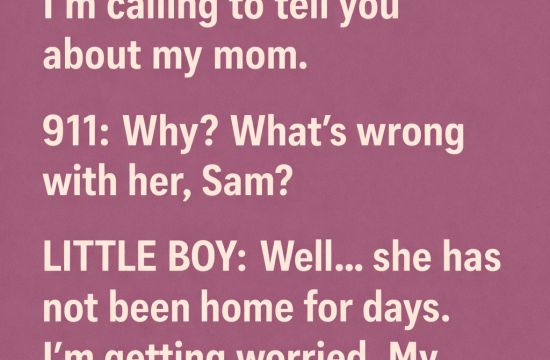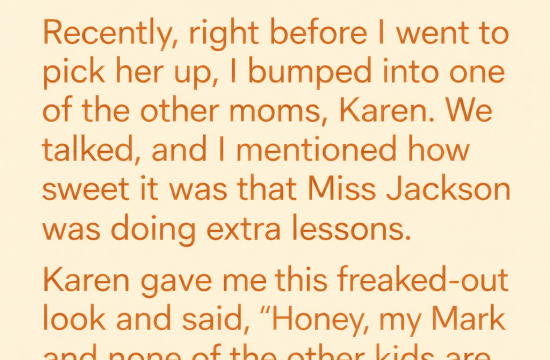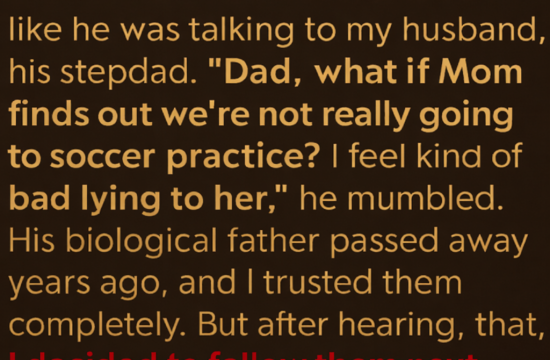My husband and I had finally agreed to split the house chores. It was his turn to do the dishes. He walked to the sink, turned on the tap, wet his hands… then shut it off, dried them, grabbed the car keys, and left. I stood there, sponge in hand, blinking in disbelief.
When he came back, he was grinning like the day we first moved in—two big boxes from the home store in his arms.
Still confused, I watched him open them. Inside was a brand-new, top-of-the-line dishwasher. I couldn’t help bursting into laughter.
“You really bought a dishwasher… so you wouldn’t have to wash the dishes yourself?” I asked, half amused, half exasperated.
He gave a sheepish smile and rubbed the back of his neck. “Technically, it still counts as washing the dishes, doesn’t it?”
I should’ve been mad. But the way he looked—like he’d just solved world peace—made me laugh even harder. We unpacked it together, still giggling like kids. Reading the manual, debating installation directions, I realized how rare it had become for us to simply be together like this.
Life had gotten busy—jobs, errands, exhaustion. Somewhere along the way, we’d started drifting apart. And here we were now, side by side again… because of a silly dishwasher.
When it finally hummed to life, he leaned against the counter and sighed. “I know it seems dumb,” he said softly, “but I thought… if we had one less thing to argue about, maybe we’d have more energy for each other.”
His words hit harder than I expected. Our bickering about chores was never really about dishes—we were just tired, disconnected, running on autopilot. I reached for his hand. “I’m sorry I didn’t see it sooner,” I whispered.
“I’m sorry too,” he said.
We hugged, surrounded by the gentle hum of the first wash cycle. And for the first time in a long time, our home felt peaceful again.
After that, the dishwasher changed more than just the kitchen routine. We started cooking together. Chopping vegetables side by side. Laughing at burnt onions. Competing over who made better pasta. The kitchen became warm—not just from the oven, but from us.
One Saturday morning, he brought me breakfast in bed—pancakes, scrambled eggs, coffee exactly the way I liked it. I asked why.
He shrugged. “I don’t want us to end up like my parents.”
That hit deep. His parents stayed married but lived like strangers. We made a promise right then: weekly check-ins. Honest ones. No matter how busy or tired we were.
At first, it felt forced. But soon, those conversations became the thing I looked forward to most. They brought us closer than we’d been in years.
Then life threw us a curveball.
He got laid off. Came home pale, holding a cardboard box with his things. Fear wrapped around me like a fist. Bills. Rent. What now?
But I remembered our promise.
That night, we talked for hours. He admitted feeling worthless. I told him we’d figure it out together.
We cut back on expenses. I took extra shifts. He handled more at home—cooking, cleaning, fixing everything we’d let slide for years.
During that time, I rediscovered a side of him I’d forgotten. Thoughtful. Patient. Creative. One night I came home to candlelight, soft music, and my favorite dish—made entirely from scratch.
We danced in the kitchen until the candles melted low, holding each other like we were falling in love all over again.
Eventually, he found a job he loved even more than the old one. But we had also changed—stronger, steadier, more intentional.
We forgave faster. Laughed easier. Celebrated smaller victories.
Then another test arrived—my mother fell ill.
We brought her home with us. Our routine shattered overnight. Doctor visits, sleepless nights, worry thick enough to choke on. I feared the stress would break us.
But he never wavered. He comforted her. Made her laugh on days she barely spoke. Held me—truly held me—when I cried into his chest.
“We’re a team,” he’d say. “We’ll get through this like we always do.”
Eventually, she recovered enough to return home. We took a weekend trip to the lake just to breathe. Hiked. Swam. Watched the stars. One night he looked at me with tears in his eyes.
“Thank you for never giving up on us.”
A few weeks later, we found a dusty box in the attic—full of letters we’d written when we were dating. We stayed up all night reading them. Laughing. Crying. Remembering who we were.
We started writing letters again, hiding them around the house—inside coat pockets, under pillows, taped brazenly to the milk carton. Those little notes brought back butterflies I’d assumed had died years ago.
We flirted again. Dreamed again. Tried cooking classes, pottery workshops. Our mugs were lopsided, our pasta uneven—but we were learning side by side, just like we used to.
Then, while cleaning out the shed, we stumbled upon an old photo album—pictures from our early days. Camping trips, messy birthdays, awkward family holidays. Every photo was a reminder of why we’d fallen in love.
That evening, sitting on the porch, we watched the sun dip below the horizon. He took my hand and said, “I don’t care if we’re old and wrinkled, as long as we keep choosing each other.”
And I knew—no matter what came next—we would be okay.
A few years later, life delivered a poetic twist.
Our dishwasher broke down. A loud bang. A puff of smoke. The unmistakable smell of burnt plastic.
We stared at each other… and burst out laughing.
“Back to hand-washing?” he teased.
But this time, we did it together. Splashing each other, joking like teenagers, talking the way we used to when life wasn’t so loud.
And I realized—it was never the dishwasher that saved our marriage.
It was the decision to stop drifting. The choice to turn toward each other instead of away.
Even after we bought a new machine, we made a pact: once a week, we’d wash dishes by hand. Just to be close. To talk. To listen.
Because love grows strongest in the simplest moments.
Now, two decades in, every time I hear the soft hum of the dishwasher, I smile. It reminds me how far we’ve come. How a silly impulse-buy wasn’t an escape from chores—it was a doorway back to us.
So if you’re reading this, wondering how to fix something that feels broken, I hope our story shows you this:
It doesn’t always take a miracle. Sometimes, it takes effort. A shared chore. An honest conversation. A hand held in the quiet.
Love does not thrive on autopilot. It needs attention. Laughter. Forgiveness. The courage to stay when life gets messy.
Our marriage isn’t perfect. But it’s real. And it’s ours.
So here’s to the small things—dishwashers, dinner plates, scribbled notes in coat pockets—that become the big things.
And if this story touched you, pass it on. Someone out there might need the reminder:
Love is worth fighting for.
Even when it begins at the kitchen sink.


